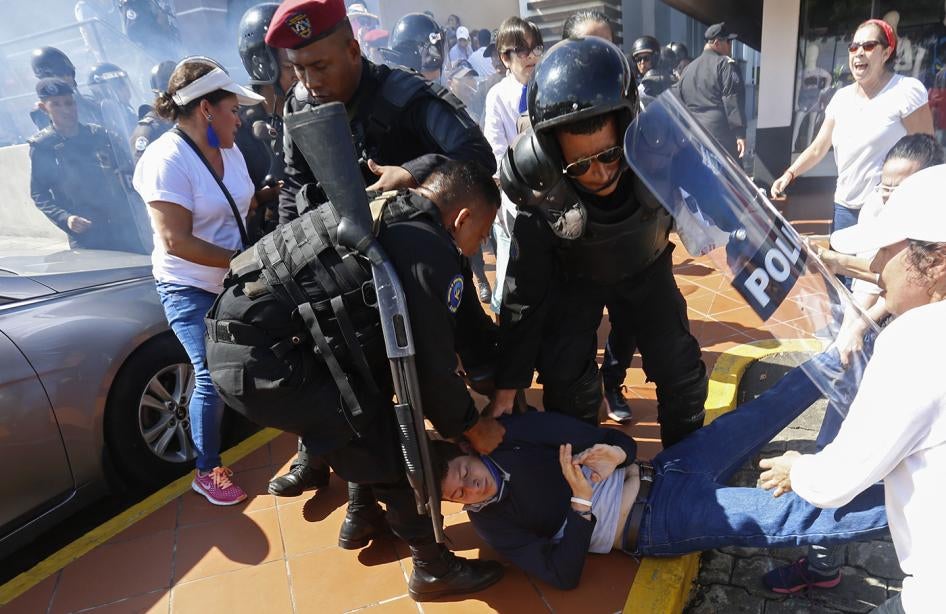This week, the European Union and United Kingdom adopted targeted sanctions, including travel bans and asset freezes, against six Nicaraguan officials implicated in a brutal 2018 crackdown on dissent. In doing so, they send a strong message that ongoing repression in Nicaragua will not be tolerated.
Nicaragua’s human rights record is deplorable. The country’s 2018 crackdown on protesters, opponents, and critics involved hundreds of deaths, thousands of injuries, arbitrary arrests, and censorship of independent media and civil society. In March 2020, the United Nations Office of the High Commissioner for Human Rights reported that repression related to the 2018 crackdown continues. The Nicaraguan government’s response to the coronavirus pandemic, which has included ignoring health experts’ recommendations, choosing not to impose a quarantine, and calling people to the streets in mass rallies, also risks people’s health and safety.
In 2019, Human Rights Watch recommended sanctions against seven Nicaraguan officials after finding credible evidence linking them to grave human rights abuses, including violence against protesters, acts amounting to torture, and persecution of civil society groups, protestors, and media outlets.
The new sanctions target four of these individuals: Francisco Díaz, chief of the National Police; Ramon Avellán, deputy police chief; Luis Pérez Olivas, chief of El Chipote prison; and Justo Pastor Urbina, chief of the police’s special operations unit. The National Police were primarily responsible for enforcing the repression in 2018, and security forces committed many abuses against demonstrators in El Chipote prison.
Two of the other sanctioned individuals are Sonia Castro González and Néstor Moncada Lau, health and national security advisors, respectively, to President Daniel Ortega. According to the EU, Castro González hindered injured protestors’ access to emergency medical care and Moncada Lau was directly involved in establishing policies to repress demonstrators. Human Rights Watch found that during and after the 2018 crackdown, the Nicaraguan Health Ministry fired at least 400 doctors for providing care to victims, and police and armed pro-government groups made threats against doctors’ lives.
The EU and UK are now joining the United States and Canada in placing much-needed pressure on the Ortega administration to curb its abusive tactics through targeted sanctions. Without international pressure, the Nicaraguan government will feel free to continue its abuses with impunity, and victims will continue to live in fear, with little hope for justice. It is essential to keep it up.
|
Commentary
EU, UK Sanction Top Nicaraguan Officials
Authorities Implicated in Violent 2018 Crackdown
Published in:
La Prensa
Your tax deductible gift can help stop human rights violations and save lives around the world.
Most Viewed
-
November 25, 2019
A Dirty Investment

-
June 3, 2025
“They’re Ruining People’s Lives”

-
December 21, 2023
Meta’s Broken Promises

-
January 25, 2024
“We’re Dying Here”

-
February 19, 2018
“All We Want is Equality”





